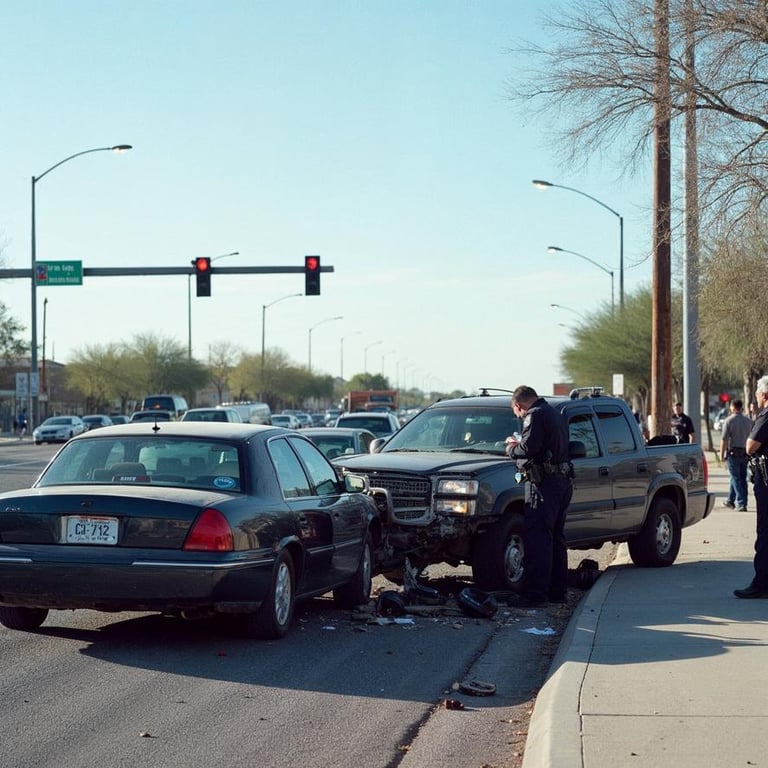
Unfortunately, based on your response, you may not qualify to file a claim. Most personal injury cases must be filed within two years of the accident, in accordance with the statute of limitations. Please consult with a licensed attorney to explore any possible exceptions or additional options.
Rear-end collisions are among the most common types of vehicle accidents in Tucson and across the United States. These accidents occur when one vehicle crashes into the back of another. Despite their frequency, handling the aftermath can be complex, especially when it involves insurance claims and compensation.
Several factors contribute to rear-end crashes, including distracted driving, tailgating, sudden stops, weather conditions, and vehicle malfunctions. Understanding the cause of the accident can be vital in establishing fault and supporting your claim.
Filing a claim after a rear-end collision involves several steps. First, ensure all parties are safe and emergency services have been contacted if necessary. Gathering evidence at the scene, such as photos and witness information, is crucial. Then, you will need to notify your insurance company and possibly the insurer of the other party involved.
For a detailed guide to the claims process, you can visit filing a rear-end accident claim in Seattle, which offers insights transferable to Tucson cases.
Documentation plays a critical role in the success of a rear-end collision claim. This includes police reports, medical records, photographs of the accident scene, vehicle damage, and witness statements. Maintaining organized records can help in negotiating with insurance adjusters and facilitating a fair settlement.
Medical records are essential components when filing an injury claim resulting from a rear-end collision. They provide objective proof of injuries sustained and treatments required. Detailed medical documentation can significantly influence the compensation amount.
For more about how medical evidence affects car accident claims, check out how medical records influence car accident claims.
Insurance adjusters assess claims to determine the extent of the company's liability. When communicating with adjusters, it is essential to be clear, factual, and cautious to avoid inadvertently undermining your claim. Knowing your rights and having evidence at hand strengthens your position.
Be aware of the statute of limitations for filing claims in Tucson to avoid missing critical deadlines. Also, understand that negotiating a settlement can take time and may involve an appeal process if your claim is initially denied.
While navigating your claim independently is possible, consulting with professionals who understand the complexities of motor vehicle claims can improve outcomes. They can assist in gathering evidence, negotiating settlements, and ensuring your rights are protected.
For additional assistance, consider requesting a free claim review to better understand your options.
To further understand vehicle safety and collision prevention strategies, the National Highway Traffic Safety Administration provides valuable information on traffic safety facts that can help Tucson drivers stay safer on the road.
Rear-end collisions can be stressful and confusing events. However, understanding the claims process, gathering proper evidence, and knowing your rights can make navigating these claims more manageable. Utilizing resources like expert guides and obtaining a free claim review can provide valuable support on the path to compensation.
Unfortunately, based on your response, you may not qualify to file a claim. Most personal injury cases must be filed within two years of the accident, in accordance with the statute of limitations. Please consult with a licensed attorney to explore any possible exceptions or additional options.